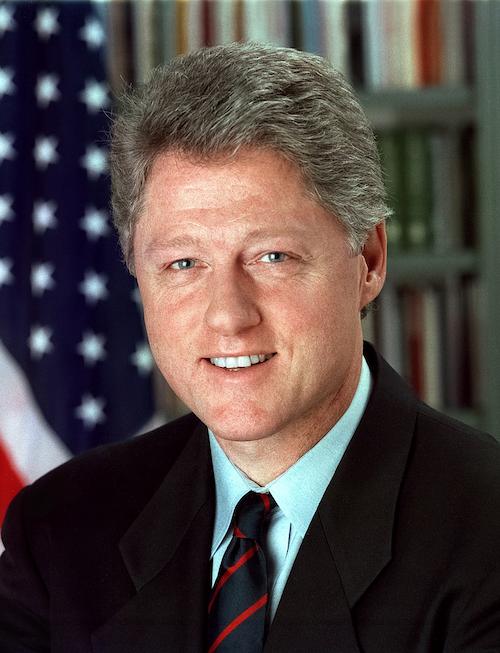Bill Clinton served as the 42nd President of the United States from 1993 to 2001. His effort to pass health insurance reform, led by First Lady Hillary Clinton, ultimately failed, but it paved the way for the eventual passage of “Obamacare.”
Early Life
William Jefferson Clinton (originally William Jefferson Blythe III) was born in the racially segregated south in Hope, Arkansas, on August 19, 1946. Clinton spent his first few years under the care of his grandparents, who owned a local grocery store that sold goods to people of all races, while his mother, Virginia, was in nursing school. After she returned from school, she married Roger Clinton Jr., prompting Clinton to take his stepfather’s surname.
Clinton completed his undergraduate degree at Georgetown University in 1968 and his Juris Doctor at Yale Law School, where he met his future wife, Hillary Rodham. After law school, Clinton returned to Arkansas and worked as a law professor at the University of Arkansas. He lost an election for the U.S. House of Representatives in 1974, before he won election as Attorney General of Arkansas in 1976.
In 1978, Clinton was elected Governor of Arkansas. He served from 1979 to 1981, when he lost reelection. However, he ran again and won, serving from 1983 to 1992. He focused on progressive policies and economic development, laying the groundwork for his later political ambitions.
Presidency
In 1992, Clinton’s political journey culminated in his election as President of the United States. His presidency, characterized by a centrist approach and focus on economic prosperity, saw significant accomplishments, including the passage of the North American Free Trade Agreement (NAFTA) and welfare reform. Clinton presided over the longest period of peacetime economic expansion in American history.
His presidency, however, was also marred by controversy, most notably his impeachment by the House of Representatives in 1998 for perjury and obstruction of justice related to the Monica Lewinsky affair. Despite these challenges, Clinton’s leadership during a period of economic growth and his efforts to promote peace and reconciliation in international affairs, most notably in the Balkans, continue to shape his legacy.
Post Presidency
Clinton remained active in public life through his philanthropic work and advocacy efforts. He supported Hillary in her 2008 and 2016 campaigns for President. They also established the Clinton Foundation, a nonprofit organization dedicated to addressing global issues such as public health, climate change, and economic inequality.






